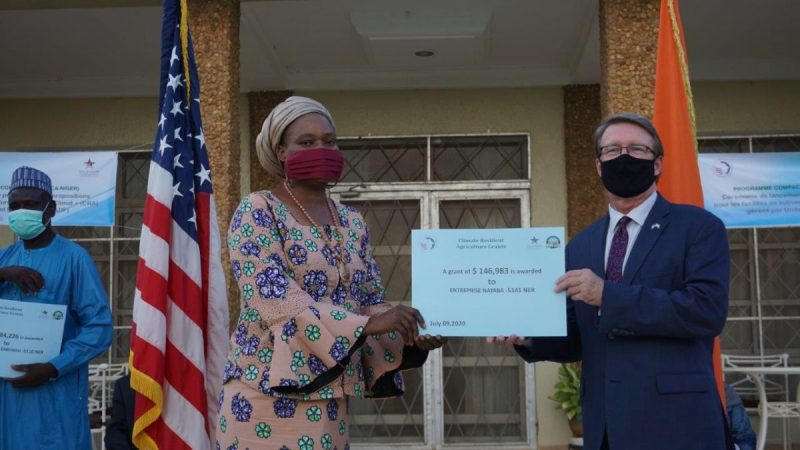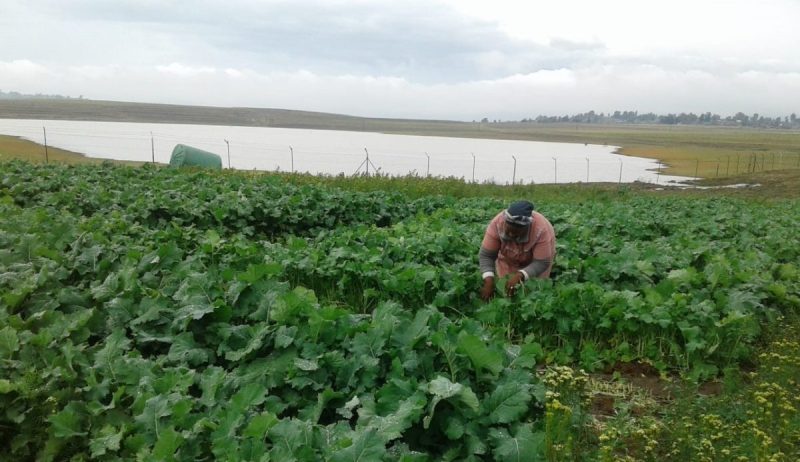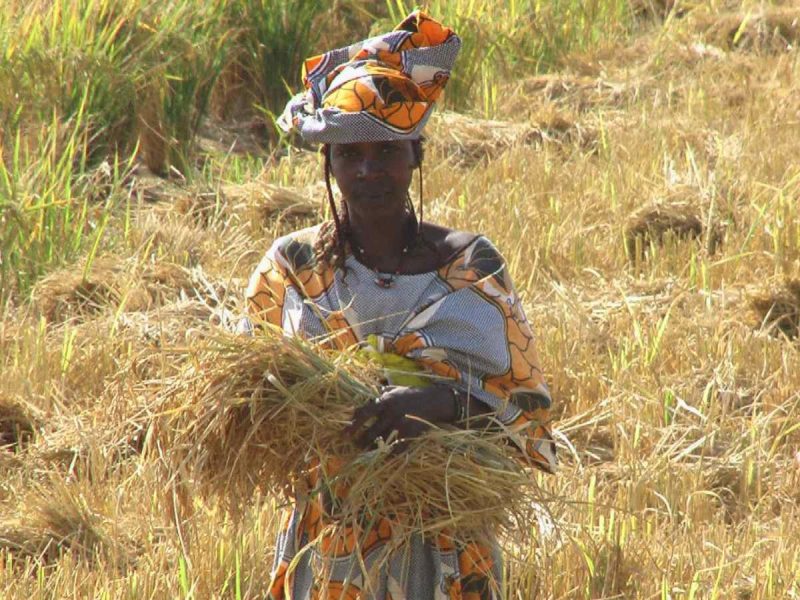The reality for women and girls who live in rural communities around the world can be starkly different than that of those who live in urban settings. For most rural women and girls, agriculture is a critical employment sector in low and lower-middle income countries, and it is often an unprotected industry in terms of both labor and social rights. With less than 15 percent of agricultural landholders being women, their ability to prosper, access new opportunities, and achieve equality within their homes and communities is greatly strained.
Across MCC’s portfolio, our grants, called compacts, have advanced and continue to improve the lives of rural women and girls through policy and institutional strengthening, economic opportunity, and empowerment and advocacy. MCC’s Gender Policy recognizes women as economic actors, and that gender inequality can be a significant constraint to economic growth and poverty reduction. Here are a few examples of where MCC investments are working to advance rural women’s empowerment around the world.
A recipient of MCC's Niger agriculture grant receives her award at a ceremony with the U.S. Ambassador in Niamey. The grants will help recipients-- mainly women or youth-led groups-- to strengthen and develop their businesses and will improve irrigation and agricultural production.

Niger
In Niger, approximately 70 percent of all employed women work in the agricultural sector. It is estimated that if the gender gap was closed in agricultural productivity, it would unlock financial gains that could lift over 25,000 Nigeriens out of poverty. Only 10 percent of businesses in Niger are owned by women.The Niger Compact started implementation in January 2018. The compact has a specific focus on small business empowerment, especially for women and youth. Under the Climate-Resilient Communities Project, a grant facility was established to help improve agricultural productivity and raise farm incomes. Between October 2019 and March 2020, $2.3 million in grants were awarded to 25 Nigerien producer/processor groups and micro-, small- and medium-sized enterprises, 13 of which were women or youth groups. To further enhance the benefits of these grants, literacy classes are provided along irrigation perimeters, and of the more than 4,000 farmers who have signed up for these trainings, over half of the participants are women.
A woman-owned smallholder horticulture farm in the Mafeteng district of Lesotho.

Lesotho
In Lesotho, only 32 percent of women have ownership or secure rights over agricultural land, and women earn only 45 percent of men’s average monthly earnings in the private sector. Women primarily work within informal sectors, which provide less secure, lower wage jobs, and are not protected under current Lesotho law.MCC’s initial compact in Lesotho was implemented between 2008 to 2013. One requirement of the compact was the passage of the Legal Capacity of Married Persons Act which gave some married women equal property rights with their spouses, including joint titling for land. Until the passage of the Legal Capacity of Married Persons Act of 2006, married women in Lesotho were considered legal minors. The MCC-funded Gender Equality in Economic Rights Program and the Land Administration Reform Project conducted outreach and ensured the implementation of the legislation. In March 2022, a World Bank evaluation of MCC’s investments in Lesotho found a 55 percent increase in the likelihood of land being individually or jointly titled in the name of a woman as a direct result of MCC’s reforms.
The Lesotho Health and Horticulture Compact, which was signed in May 2022, will build upon the successes and lessons learned from the prior compact. This compact will support the government as it expands upon the legal rights established for women in the previous compact by harmonizing customary laws with the statutory reforms, reforming the inheritance law, and by better addressing the manifold challenges faced by rural women and girls. Occupational health and safety legislation and an updated labor code to oversee the agricultural sector will further ensure a positive impact of these investments. Projects in commercial irrigated horticulture and in finance and capacity for entrepreneurs have been designed to ensure that women have access to, participate in and benefit from these investments. Health investments will target medical providers to better identify victims of gender-based violence and understand important standard operating protocols and clinical management of gender-based violence cases.
A Malian woman holds rice she harvested.

Mali
In Mali, women experience barriers to inherit assets, along with difficulties accessing divorce with 44 percent of women and girls experiencing early marriage. Approximately half of Mali’s female population is employed in the agriculture sector. Female farmers are more vulnerable to the effects of climate change and land degradation, which is a barrier to reducing poverty for rural women and girls engaged in agriculture.MCC implemented a compact in Mali from 2007 to 2012. As part of the compact, the Alatona Irrigation Project built a 5,000-hectare perimeter of irrigated land suitable for rice production. Efforts to encourage women to participate in the MCC project led to significantly greater rates of joint titling of five-hectare farms in the names of both husbands and wives than was anticipated. These results did not require any legal changes, but rather were achieved through public outreach campaigns that emphasized gender equity, reinforced by gender specialists who were included in the community outreach teams.
These examples illustrate how MCC investments work to improve the lives and livelihoods of rural women and girls around the world. The examples of Niger, Mali, and Lesotho demonstrate how increasing economic opportunities for rural women can have positive ripple effects for everyone by improving outcomes in health, education, land productivity, and household incomes.

